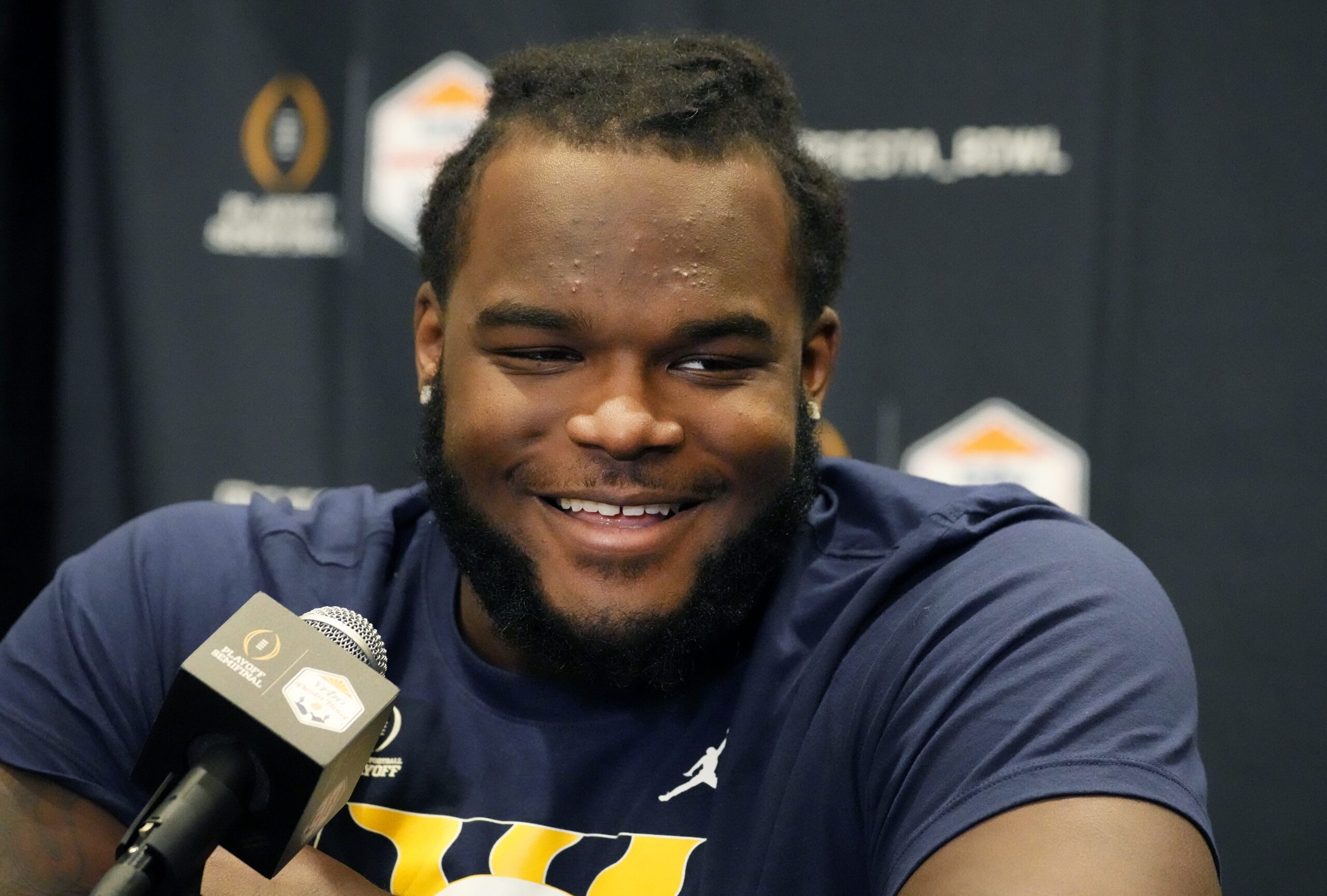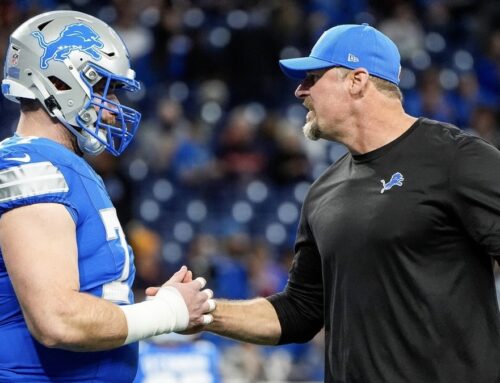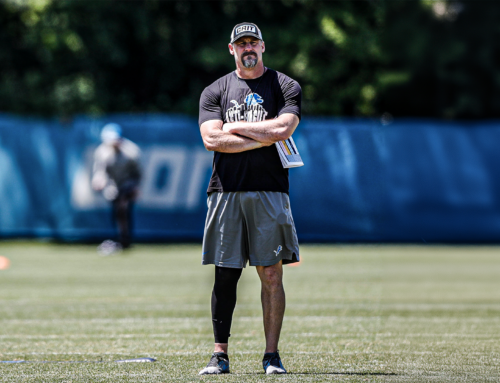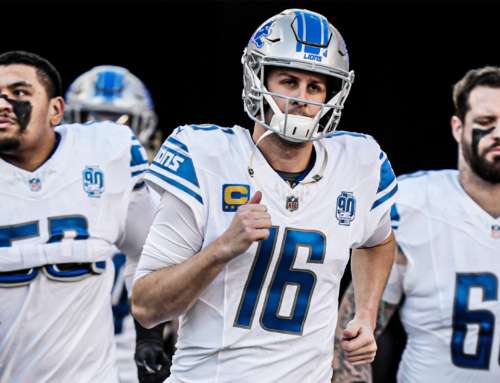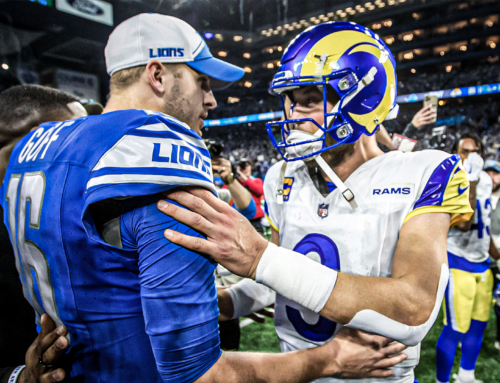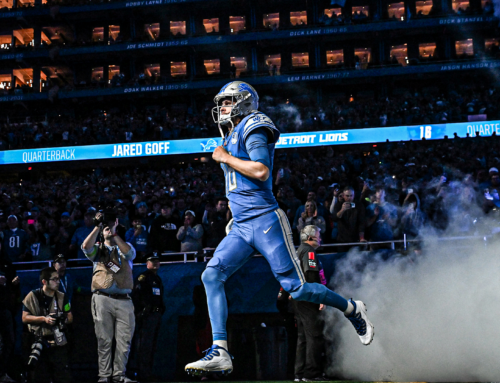The 2023 NFL Scouting Combine kicks off tomorrow March 2. The top prospects in this year’s draft will have the opportunity to showcase their talent, and, more importantly, meet with interested teams. On the first day of the combine, the Detroit Lions will take a long look at the defensive linemen’s performances.
The defensive line is a major area of need for the Lions, mainly interior linemen. The Lions parted ways with veteran Michael Brockers, and need to find someone to pair with Alim McNeill. Detroit desperately needs to improve its defense. The team ranked 28th in points allowed and last in yards allowed in 2022. Adding reliable pass rushers and run defenders along the defensive front will help.
The Lions will not get a look at Georgia defensive tackle Jalen Carter as the junior will be skipping combine workouts. Carter is unlikely to be available when the Lions select at sixth overall. He is the top prospect on many evaluators’ big boards.
Reports have hit this morning that Jalen Carter may have been involved in a teammates’s fatal car crash. More to come on this situation below:
BREAKING: Arrest Warrant Out for DT Jalen Carter in Connection with Fatal Crash
The Detroit Lions could heavily target defensive prospects early in the draft. While a cornerback is an obvious choice with at least one of the team’s picks in the top 60, interior and edge rushers are also likely targets.
Here are some of the top defensive linemen to keep an eye on during the combine.
The Detroit Lions need to keep these interior defensive linemen on their radar
Bryan Bresee, Clemson
The tape on Bryan Bresee is a bit limited. He played in just 14 games in his last two collegiate seasons. In a limited sample size, the 6-5, 300-pound lineman showed a good blend of size and burst. He has the versatility to line up anywhere from over the tackles to at the nose.
However, Bresee has serious long-term health concerns. He tore his ACL in 2021 and underwent surgery on his shoulder in early 2022. There is reason to be concerned if he can hold up under an NFL workload.
A positive medical report from the combine is critical to Bresee holding onto his first-round prospect status. Players with concerning medical reports have slipped down draft boards in the past.
Calijah Kancey, Pittsburgh
If the Lions target a defensive lineman in with the 18th pick, Pittsburgh’s Calijah Kancey could be the best option available. Kancey was a productive pass rusher in college. It is likely that Kancey could be limited to a situational pass rusher early on in his career. He is undersized at 6-0, and his run defense has room for improvement. However, that is a role Kancey can thrive in while he develops the other aspects of his game.
Kancey is a potential show-stealer at this year’s combine. While he may be undersized, he has the athletic tools that will wow scouts in the 40-yard dash and bag drills. Kancey is currently projected somewhere between the late first to early second round of the draft. With a strong performance at the combine, he could work his way up to the middle of the first round.
Mazi Smith, Michigan
The Detroit Lions could spend a second-round pick on an in-state prospect in Mazi Smith. The University of Michigan defensive lineman has a good build at 6-3 and 337 pounds. He has strong hands and generates push at the line of scrimmage with ease.
Smith’s versatility is somewhat limited at the NFL level. He is not likely to fill a role anywhere but the defensive interior between the tackles. However, Smith has the potential to be dominant in that nose tackle role. He is stout in the run game, nearly immovable. With a combination of good hand placement and strength, he has the ability to throw pass blockers around.
Smith could easily be a big riser on draft boards after the combine. He has all the physical tools to turn heads. He may not be a stat sheet filler during his career, but he is sure to be a productive player.
Siaki Ika, Baylor
The Detroit Lions should not look anywhere outside the first two rounds for an interior defensive lineman. It has become rare to find good starting quality interior linemen in recent drafts, especially outside the early rounds. Baylors’ Siaki Ika is likely to be available when the Lions select with either of their second-round picks.
Ika is a mountain at 6-4 and 358 pounds. He is a nose tackle through and through, but he dominates with leverage and walks opposing centers into the backfield. He is not going to be a flashy pass rusher, but his dominance as a run defender would shore up plenty of struggles along Detroit’s defensive line.
There is reason to believe Ika will not test well during the combine. He is huge and does not have a lot of fluid mobility. His footwork during movement drills is something to keep an eye on.
Edge Rushers the Lions could use to supplement Aiden Hutchinson and James Houston
Tuli Tuipulotu, USC
At USC Tuli Tuipulotu showed the versatility to play both on the edge and as an interior defensive lineman. He finished 2022 with 13 sacks and 37 hurries. The 6-4, 290-pound pass rusher currently projects as a second-round pick.
Tuipulotu will showcase his athleticism at the draft. Will that entice teams to boost his draft stock? Probably not. There are questions as to whether he can be a true edge or interior rusher, or if he is stuck somewhere in the middle. Play strength is another concern for Tuipulotu entering the draft.
Isaiah Foskey, Notre Dame
All of the physical tools are there for Isaiah Foskey to be a dominant player. He has the size. He has the athletic tools. However, he was never consistently dominant at Notre Dame.
Foskey is fine as a run defender. He holds up well, but he does not hang his hat as a run defender. Foskey is a 4-3 edge rusher. He uses his physical traits to get by offensive linemen and into the backfield.
Foskey currently projects as a late second or early third-round pick. With his athletic traits on full display at the combine, he could work his way up to a clear-cut second-round pick.
Mike Morris, Michigan
Mike Morris will garner attention the minute he measures in at the combine. The 6-4 edge rusher has plenty of length and utilizes his hands very well as a pass rusher. He was not dominant at Michigan, but he has the physical build and tools that many teams will decide they can work with.
Morris does not consistently play with leverage, and he is a liability as a run defender. Early on in his career, he is a likely situational pass rusher. With his size and length, there is no reason to think Morris cannot make strides as a run-stopper.

